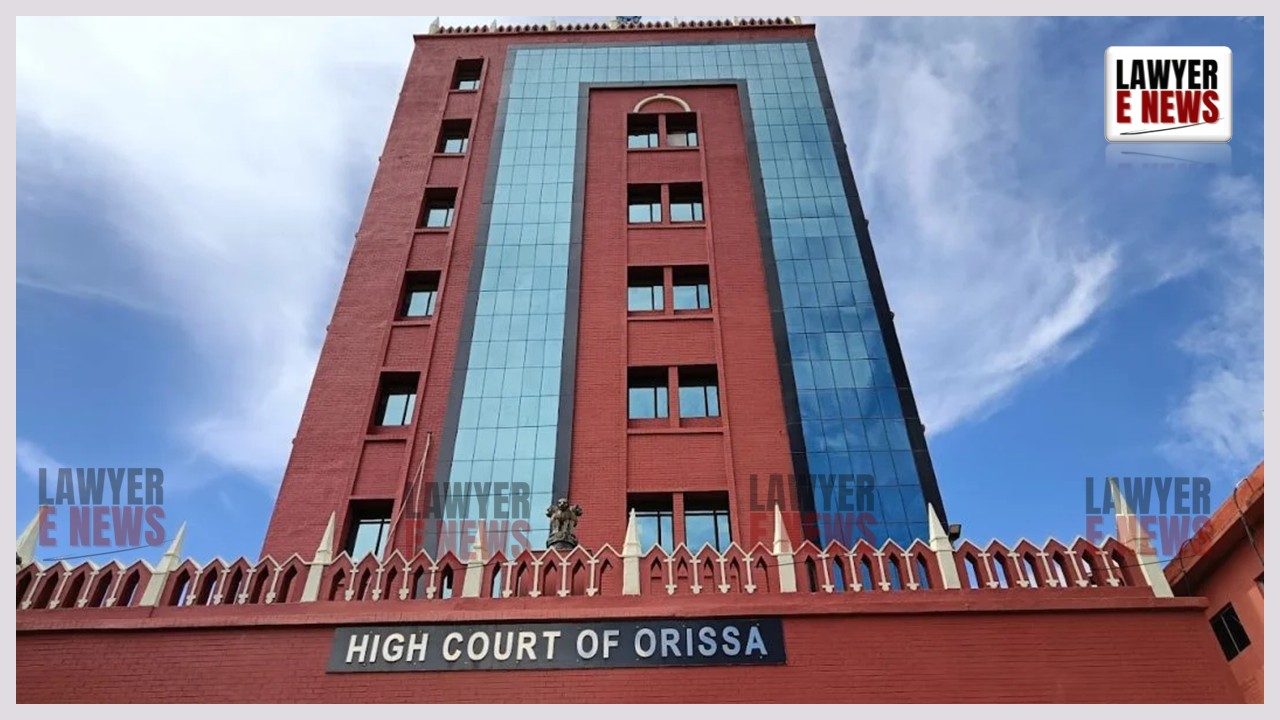-
by Admin
18 February 2026 4:37 AM



In a significant judgment Orissa High Court upheld the Family Court’s declaration of Anusaya Mohanty as the legally wedded wife and legal heir of Late Kailash Chandra Mohanty. The Division Bench of Justices Chittaranjan Dash and B.P. Routray also clarified that children born from a second, void marriage are entitled to inherit the self-acquired and notional share in ancestral property of the deceased father, affirming the constitutional and statutory protection of legitimacy under Section 16 of the Hindu Marriage Act, 1955.
“Children born from void or voidable marriages are legitimate and have a right in their parent’s share of ancestral property and full right over self-acquired property”
The Respondent, Anusaya Mohanty, approached the Family Court at Bhubaneswar seeking a declaration of her marital status as the legally wedded wife of Late Kailash Chandra Mohanty, claiming they married in 1966 and had two sons. The Appellant, Sandhya Rani Sahoo, contested this, asserting her own relationship with the deceased and rights of her children born from that union.
The Family Court had previously ruled in favour of Anusaya, but that judgment was set aside by the High Court in MATA No. 96 of 2021 due to lack of opportunity afforded to the Appellant during COVID-19. Upon remand, the Family Court again held Anusaya to be the legally wedded wife and legal heir. Sandhya challenged the fresh decree on grounds of jurisdiction, limitation, and non-recognition of her children’s inheritance rights.
Rejecting the Appellant’s argument that only a Civil Court under Section 34 of the Specific Relief Act could grant a declaratory relief of marital status, the Court held:
“Section 7(1)(b) of the Family Courts Act, 1984, clearly empowers the Family Court to determine a person’s marital status. The declaration sought in this case directly falls within that jurisdiction.”
The Court emphasized the principle of lex specialis derogat legi generali, holding: “Family Courts Act, being a special law, overrides the general jurisdiction of Civil Courts in such matrimonial matters.”
The Court also cited Balram Yadav v. Fulmaniya Yadav, AIR 2016 SC 2161: “A suit or proceeding for a declaration as to the validity of a marriage or as to the matrimonial status of any person is within the exclusive jurisdiction of the Family Court.”
The Appellant had contended that the declaration was sought more than three years after the husband’s death, thus barred under Article 58 of the Limitation Act. The Court disagreed:
“Section 14(2) of the Limitation Act protects the Respondent, as she had filed the matter first in Civil Court in good faith, which was later returned for want of jurisdiction. The intervening time is excluded.”
The Court also recognized that marital status involves continuing cause of action: “Disputes concerning marital status carry long-term implications on inheritance and identity. The right to seek a declaration of such status does not extinguish by time.”
The Court found merit in the Appellant’s claim that her children were wrongly excluded from any mention in the final relief, even though the Family Court acknowledged their legitimacy.
Relying heavily on the Supreme Court’s authoritative pronouncement in Revanasiddappa v. Mallikarjun, 2023 LiveLaw (SC) 737, the Court reiterated: “Children born from void or voidable marriages are legitimate under Section 16 of HMA, and are entitled to inherit the self-acquired property of the parent, and the notional share of ancestral property that would have fallen to the parent in a partition.”
The Bench clarified: “These children cannot be denied their rightful inheritance merely because their parents’ marriage is void. Section 16(3) of HMA and Section 6(3) of the Hindu Succession Act must be harmoniously construed to ensure justice.”
While upholding the Family Court’s declaration of Anusaya as the legally wedded wife, the High Court modified the final order to ensure the rights of the children from the second relationship are explicitly protected: “The Appellant’s children are entitled to inherit Late Kailash Chandra Mohanty’s self-acquired property, and a share in his ancestral property, limited to the portion he would have received upon notional partition under Section 6(3) of the HSA.”
The appeal was dismissed on merits, and the judgment of the Family Court dated 12.12.2023 was affirmed with this modification.
Date of Decision: 2 April 2025
